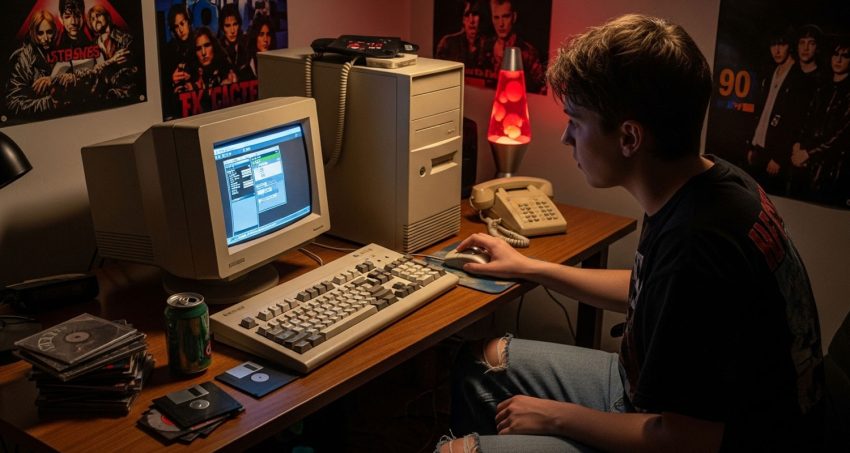“AOL routinely evaluates its products and services and has decided to discontinue dial-up internet,” AOL said in a message to its dial-up users. “This service will no longer be available in AOL plans.”
It may be difficult to believe that there are still people in the US using outdated dial-up technology to connect to the internet, especially considering how bandwidth-intensive modern communication has become. Dial-up speeds usually topped out at 56kbit/s, although it was possible – and expensive – to get 128kbit/s connections.
Modern technologies such as fibre and mobile broadband are not only hundreds of times faster than dial-up, but they are cheaper and more reliable, too.
Mweb in South Africa modelled itself on AOL and was one of the country’s leading dial-up ISPs in the late 1990s and early 2000s at the time AOL was dominant in the US. AOL’s infamously aggressive marketing model involved offering free trials to consumers through CD-ROMs and floppy disks distributed via magazines, cereal boxes, airline seat pockets and even cinema checkout counters.
The strategy won it significant market share, helping it introduce many users to the internet for the first time. But its aggressive marketing tactics led to the proliferation of its CD-ROMs turning into a gag. Many of AOL’s CDs ended up as coasters, wind chimes and Christmas ornaments; or as elements in other home art projects.
Big Black Box
Mweb achieved similar success through its “Big Black Box” marketing campaign, which was introduced in 1997 when the internet was still nascent in South Africa – and still eye-wateringly expensive thanks to Telkom’s monopoly of fixed-line and international telecommunications at the time.
Connecting to the internet was an intimidating experience for lay users in the 1990s, when even the term itself represented the unknown.
Unlike today’s digital-native generation, for whom connectivity is seamless and often taken for granted, the uninitiated first timers in the 1990s had to learn new terms like modem, baud rate, ISP, protocol and even browser. Dial-up modems were also noisy, often beeping during the handshake that formed the connection.
Read: Webafrica to buy Mweb from Dimension Data
Mweb took advantage of the chaos by marketing the Big Black Box as a simple, all-in-one starter kit. The first version of the box came with dial-up modem, installation instructions and a copy of Arthur Goldstuck’s 1995 bestseller, The Hitchhiker’s Guide to the Internet: A South African Handbook. Mweb was eventually sold to Dimension Data – now NTT Data – and subsequently sold to WebAfrica.
Dial-up’s supremacy was later to be challenged by ADSL, offering a constant internet connection and faster speeds to end users.
Introduced by Telkom in August 2002, ADSL’s advantage over dial-up was in more than just superior speeds. Both dial-up and ADSL made use of the copper phone lines running into people’s homes in much the same way that today’s fibre-optic cables do. The major difference between the two was that dial-up connections hogged the phone line, making it impossible for calls to be answered while an internet connection was in session. ADSL allowed for internet access and phone calls to come through a single line at the same time.
At its peak, Telkom had more than a million ADSL users subscribed to its network, but even that technology is slowly being phased out, and only 25 000 ADSL subscribers were left by June 2025, according to Telkom. The company no longer offers DSL or any copper-based fixed-line phone services to new customers.
According to a Telkom spokesman, its dial-up service was shut down in 2023 – and less than 30 customers were still using it at the time.
“Telkom and Openserve have a small, declining base of legacy copper-based DSL users as customers continue to migrate to fibre and mobile LTE/5G services,” said a Telkom spokesman.
“The remaining DSL users are dispersed nationwide, which reduces the effectiveness of cluster-based migration campaigns. Some long-time copper users are satisfied with their current service or have low usage, while others may be unaware of available options. In the coming months, we will intensify targeted migration outreach and customer support to help remaining users transition to modern alternatives.” — © 2025 NewsCentral Media
Get breaking news from TechCentral on WhatsApp. Sign up here.
